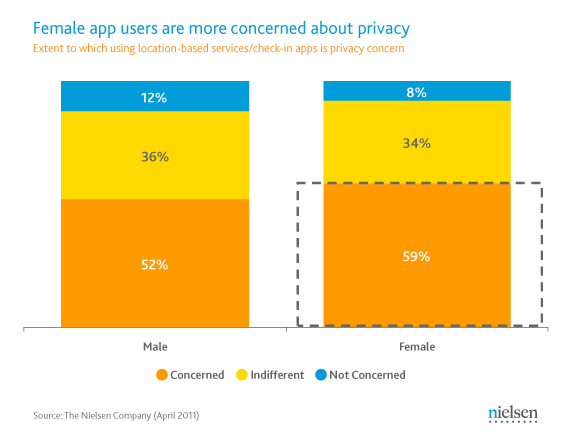Why the big interest and concern in GPS tracking?
Today, almost all of the smart devices we use for internet, communication and transportation have the capability to determine our location and to record those locations continuously. We use it for locating friends, navigating cities, tracking children, and finding restaurants. The number of things we can do with location privacy is steadily growing as more and more Location Based Services (LBS) mobile apps enter the market.
Our dependency on such services is growing as well. In the process of getting easier directions and tagging photos to locations, we’re relying more than ever on our devices to determine where we are and where we are going. People enjoy having a photo album that tracks their hiking progress, or a car that can tell you directions. These features are now expected in many products and those without can have difficulty being sold.
Yet wide-spread use of GPS and other location services hasn’t caught on with everyone. Many are concerned with the implications of user location tracking. People fear what others might do if they knew exactly every place they have gone over the past year. Stalking and surveillance without one’s knowledge has become a growing possibility as more devices and vehicles record our every movement.
Balancing the Benefits of LBS with Privacy Rights
The trade-off between the benefits and risks of location tracking devices is now a hot topic with smart phones and cars. While the public is still largely reliant on LBS, many are criticizing such services for consistent breaches of privacy and unauthorized use.
Benefits:
It’s easy to see why many people use and love LBS. The average person may use them for:
- Navigating places
Getting lost in the city is harder than ever now as long as you have a mobile device and an LBS app. - Finding local events
With LBS, you can find events in your area that other friends are attending. - Locating friends and family nearby
Whether it’s just checking if a friend is nearby, or tracking a lost child, LBS allows you to track other people easily. - Finding restaurants, hotels, malls, etc.
With services like Yelp, you can not only find the location of the nearest restaurant, but you could also read reviews. - Reducing traffic
If your car could determine where traffic was less jammed, you could choose the fastest route to your destination. Additionally, you could use apps like Trapster to determine the location of speed traps and cameras and thereby evade traffic fines. - Receiving discounts.
Several merchants offer discounts as awards for checking in at certain places.
The average person is not the only beneficiary of such services. The government also finds such services useful. What rights the police and individuals have in regard to their location data is still being determined in courts, but location tracking has been used by law enforcement for:
- Tracking criminals
One controversial case for law enforcement use of GPS is with tracking criminals. In one case, a cocaine dealer’s locations were tracked to find evidence to convict him of drug trafficking charges. Localization technology’s use without a warrant has been in question in the courts, but the technology – with or without a warrant – can allows police to make important arrests that they otherwise wouldn’t be able to make. - Monitoring Networks
A less legal and more technical use of GPS can also be seen in monitoring large networks such as traffic. If traffic is tracked accurately enough, better roads and traffic jam notifications could be produced very quickly. GPS monitoring could also be used to quickly identify accidents as cars slow down or stop on major freeways. Such fast knowledge could improve medical response times or allow emergency crews to avoid congesting areas.
Consequences:
The current fear with GPS and location data tracking is not in new uses of location information but misuse of data that is utilized by our normal services. Many of the features that are discussed in the Benefits section can very easily be turned around and misused. Among the many concerns people have cited are:
- Lack of control of my personal information.
Many apps offer the user only limited permission settings, and some are not explicit at all about what information is private. - Minimal awareness on who’s using my information
Many LBS allow you to distinguish between friends and strangers. Yet some apps are not explicit at all about what information is public or private to your friends. - Non-existent adoption of industry privacy standards
The iPhone and Android phones were recently discovered to track all locations the phone had been for its lifetime inside secret files. This information was either unencrypted on the phones or the users were not informed of the data being present.In each case the companies defended their choices and took measures to ensure the data was more safely processed, but the problem still sparked suspicion and talk of government/corporation tracking since it was discovered.
The recent controversy over the logged file of location data found in the iPhone and the Android highlights the significant privacy concerns over LBS apps. Interestingly, according to The Nielsen Company’s latest research (see charts on right), the younger generation is considerably less concerned about such issues. This may be indicative of a trend and the future role of LBS apps, but in the meantime we’ll see where the technology takes us.
For sources, see our References page.

